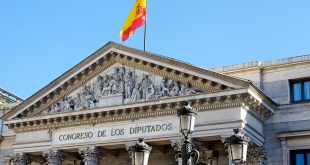Brazil: regulated sports betting – more nutcracker than sweet
Regulated sports betting in Brazil is now awaiting only the signature of President Michel Temer, who has previously said he would approve any gambling liberalisation plans. Legislation to regulate sports betting in Brazil is therefore now a near certainty, in our view. However, as we flagged last week, the final shape of the Brazilian gambling market is far from clear and potentially carries far more risks than rewards for most operators. We therefore ask what is likely to happen next and who will be the major winners and losers within a market that still defies its potential.
The legislation effectively puts sports betting within a lottery framework, but is silent whether this will be run by the incumbent monopoly (Caixa), open to a different monopoly (as, tortuously, with the Brazilian scratch card franchise: revised auction today), or subject to some form of commercial licensing. All we know so far is that landbased operators will work to an 80%+ payout ratio and a 30%+ GGR equivalent tax (6% turnover), while online operators will work to 89%+ payout with a 27%+ GGR equivalent tax (3% turnover); which at least to some extent recognises the different product/customer mixes of online vs. retail, but remains a relatively distorting model, in our view.
The Brazilian government now has two years to put a framework in place. The three biggest questions (or lobbying points), we believe are: whether or not there will be multiple licences awarded; whether there will be product restrictions (eg, in-play or a Franco-Portuguese style sports event ‘catalogue’), and; the extent to which gaming will be ‘more explicitly’ banned either as a cost of entry or more generally. Ironically, a monopoly could well be the best result commercially for the offshore industry since it is likely to be ignored by many (though perhaps not by those under closer regulatory scrutiny elsewhere, such as US and UK – which includes some big names in the Brazilian market). Conversely, a licensing regime which offers a restrictive betting range and no gaming is likely to attract a relatively small number of operators in a stunted but still lucrative quasi-oligopoly environment, similar to France and Portugal. This is possibly the safest central assumption currently, given the range of regulatory options and political pressures shaping decision making.
The big risk for incumbents is the position of gaming, in our view (a c. US$500m market, RP estimate). While some operators have shown that they can be successful in competitive markets without much gaming (by some we mostly mean bet365 outside Asia), the vast majority of businesses rely on gaming for levels of incremental revenue that make the difference between profit and loss, or have limited to no betting at all. Some operators may therefore be faced with a very painful choice: accept a far less profitable (likely initially loss making) betting position; block the jurisdiction, or; chance it in a dark grey / black market, with the latter likely to be made more complex and risky by even worse payments issues in the geography than currently (which are bad enough).
For those operators that can make betting-only (or restricted betting) work, however (see Betclic and Kindred in France; to some extent Betclic and bet.pt in Portugal), there could be a real opportunity (France, for example, is one of the very few markets where Kindred achieves strong market share in the product its major brand suggests it should be good at – tellingly, it does not have bet365 as a competitor). Equally, the retail sector could be attractive (eg, to Cirsa, Codere; even UK / Italian / Austro-German LBO operators) if expansion was envisaged outside existing lottery distribution – though this could be a big ask in a conservative country. However, there are two problems with even this positive, in our view: first, the proposed regulation still suggests more risks than rewards for exposed operators; second, two years of political-regulatory wrangling is much more likely to create something worse than something better for commercial gambling interests – particularly on current lobbying and public perception form…
UK: In Parliament – warrior bishops prepare for battle; racing from Uttoxeter goes for a Burton
It is a comfort of sorts that during these dark days of Brexit uncertainty, we can still rely on gambling policy to provide a level of distraction.
The Lords were at it again this week as the Bookie-bashing Bishop of St Albans led a short debate on the “the sufficiency of current industry contributions to efforts to reduce gambling-related harm”.
The noble prelate had been scheduled to discuss the tax affairs of offshore gambling companies (in what seemed like a nod to the input VAT exemptions enjoyed by some operators). Perhaps this was too abstruse a subject for the burgundy benches and so we returned to familiar themes.
What started out as a discussion of funding for research, education and treatment swiftly migrated to concerns over advertising (the Tory Lord Forsyth of Drumlean yearning wistfully for the days when gambling companies could not even list in the Yellow Pages) and boardroom pay in Stoke-on-Trent. The veteran LibDem gambling policy-maker, Lord Foster trotted out the hackneyed – but untrue – line that only 2% of problem gamblers receive treatment; and the world of gambling was once again put to rights.
In responding to questions, Lord Ashton of Hyde did a much better job of holding the line and meeting humbug with facts than the Government has managed of late. All in all it was a relatively minor skirmish.
However, there are signs that a battle royal may be brewing in the upper chamber. The Church of England has announced plans to undertake a review of the Labour Government’s overhaul of gambling laws between 2001 and 2007 – with the House of Lords as the stage for proceedings.
In the Commons, Eddie Hughes (Cons, Walsall South) asked his party colleague and near-neighbour, Dame Caroline Spelman (Cons, Meriden) about the Church’s plans to “tackle problem gambling”. Dame Spelman (who as Second Church Estates Commissioner has God as well as a 19,000 electoral majority on her side) answered: “The Bishop of St Albans continues to spearhead the Church’s activity in this area and has recently raised in the House of Lords the high quantity of gambling advertisements, increases in child gambling, the voluntary levy paid by gambling firms, and the socio-economic cost to society of problem gambling.”
In the upper chamber, Lord Chadlington (Cons) and Baroness Howe of Idlicote (cross-bench) sought to dissect the Gambling Commission’s recent report on youth gambling in Great Britain, asking about national (England, Wales and Scotland) variations in youth problem gambling; and youth problem gambling rates by product. Lord Chadlington also persisted with a recent line of enquiry about the involvement of the Police and health services (including GPs and paramedics) in dealing with gambling-related mental health problems.
In addition, there were more general questions on Government plans to tackle problem gambling – from Preet Kaur Gill (Lab, Birmingham, Edgbaston); and lottery reform – from the campaigning Carolyn Harris (Lab, Swansea East).
The goal-hanger of the week award went to Andrea Jenkyns (Cons, Morley and Outwood) who signed EDM 1440 (swift reduction of FOBT stakes) after the Government’s capitulation on the subject.
Reporting on gambling discourse in Parliament can feel a little like watching one-way traffic at times – such is the political antipathy towards the industry. Every now and again there is the odd flicker of recognition that the industry provides a bit of colour and joy too. This week’s uplifting moment arrived in the unlikely setting of a debate about rail services in North Staffordshire.
Andrew Griffiths (Cons, Burton) lamented that some of his constituents were having their betting fun unnecessarily trammelled by restrictions on public transport. “The first train to Uttoxeter on a Sunday is at 2.30”, observed Mr Griffiths, “which means racegoers have already missed at least an hour and a half of good betting. That causes the racecourse great concern and racegoers great frustration”.
The suggestion that any betting might be considered “good” clearly runs counter to the political and media gambling zeitgeist. After this ill-judged outburst, the defenestration into the Thames of the honourable member for Burton can only be a matter of time.
US: sports integrity – operators dive into sports integrity
MGM Resorts and Caesars Entertainment have launched the Sports Wagering Integrity Monitoring Association (SWIMA) in a coordinated effort to protect the integrity of sports wagering, working with state and tribal regulators and other stakeholders by requiring sportsbooks to report suspicious betting patterns and share information. The initiative is to be funded entirely by operators.
This move signifies the seriousness with which large US operators are approaching their newly created domestic sports betting markets. They will no doubt hope that their actions provide reassurance for other states to legislate for sports betting, while also protecting delicate relationships with American sports leagues (which have so far been reticent to have involvement with betting, and/or lobbied for legally enforced levies). It is both responsible and commercially sensible for MGM and Caesars to take the initiative, with sports integrity being one of the key issues which could seriously derail the burgeoning market. The key to success is twofold, in our view: first, to ensure the broadest basis of cooperation between stakeholders, or too much will fall through the net; second, to remember and resource that the purpose is integrity – not realising commercial value or generating PR..
UK: Regulation – GambleAware baffles with load of old balls
The season of Advent may be almost upon us, but there were few signs of peace and goodwill to all men this week as GambleAware’s social experiment in fund-raising by disparagement stepped up a gear.
On Monday, the industry-funded charity released an advertising campaign led by the slogan “We Want Our Ball Back”. Its short film shows children and adults playing football in a variety of settings (young scamps on the back streets of Liverpool – you know the schtick) until mysteriously, one-by-one the footballs disappear. You see, the betting industry has been ‘stealing’ the footballs.
GambleAware is not seriously suggesting that Britain’s beleaguered gambling industry has reached such depths that executives are now resorting to petty larceny. As a voiceover makes clear, the theft of the footballs is actually a metaphor for how online betting is taking away our love of the beautiful game. The ad ends with the image of a crowd, led by the scamps (who presumably drink milk and have not the foggiest about Accrington Stanley) descending on a betting shop (symbolising a betting site) to ask for their balls back.
It is a well-executed – if somewhat dark – piece of work; but what does it all mean? What, specifically GambleAware expects to achieve is far from clear. We must hope that the charity is not trying to encourage young boys to visit their local betting shop whenever the old adidas Tango goes missing. In the absence of any clues as to what behavioural change the charity hopes to encourage, we are left with the distinct impression that the aim of the advert is to express disapproval of the betting sector’s bear-hug on televised sport in this country.
Yet while many people share GambleAware’s concern about the modern proximity of gambling to sport, it is unclear that an advert (paid for by the gambling industry) is likely to achieve very much. The industry has made it perfectly clear that it supports greater advertising restrictions around gambling and sports. It is the Government, the TV companies and the advertising firms who object. If we are indeed in the middle of a major football theft crime wave, then the culprits are more likely to be found at HM Treasury or amongst the fun loving boys and girls from Adland.
Part of the problem is that the advert appears to answer its central question: “Is betting taking away our love of the game?”. It appears as a rhetorical device rather than an expression of genuine curiosity – “is betting taking away our love of the game” becomes “betting is taking away our love of the game”.
The facts may not support this. Sure, gambling ads are annoying (as even betting CEOs attest) but do we love football (and other sports) less as a consequence? Certainly not judging by Premiership attendances or viewership; or even this year’s resurgence in love (south and east of the borders) for England’s national football team. Meanwhile, online sports betting remains a relatively marginal pursuit (8% of the British population) albeit with some important skews (nearly one-in-four 25-to-34-year-olds). There are valid concerns about gambling’s relationship with football (and sport more generally) in Britain today – but the notion that we have fallen out of love with sport (and that this is gambling’s fault) is unsubstantiated.
However, if the concern is that people (and particularly young people) have come to see sport as a medium for wagering rather than athletic contest then perhaps the charity might have followed the example of the Victorian Responsible Gambling Foundation in Australia (another market where gambling ads have proved controversial) which has targeted parents with its Love the Game campaign (https://www.youtube.com/watch?v=9DnC2DF1SSM). Not everyone would support this approach; but at least its aim is clear.
Some gambling executives may take exception to GambleAware’s campaign to demonise the donor; but it is a charity’s prerogative to articulate concerns where it finds them. It is vitally important that charitable giving should have no strings attached. Where GambleAware may be on stickier ground (aside from encouraging children to visit betting shops) is if donors consider that their funds are being spent foolishly. There is a sense of unease in the industry that so much of GambleAware’s funding is being expended on ‘vanity exercises’ targeted at the general population at a time when front-line counselling and treatment services are stretched.
GambleAware funding is reliant on the confidence of the industry and the Gambling Commission (which fund via donations and voluntary settlements) that money will be spent wisely in pursuit of harm reduction. There have been signs for some time that trust in the charity to do this has been on the wane. GambleAware may want their ball back; but how long before its supporters start to ask for their money back?
UK: Regulation – sobering times for gambling as three executives sent for early bath
A number of gambling executives were shown red cards this week as the Gambling Commission raised the bar on enforcement for social responsibility and anti-crime licence breaches.
A swingeing (but not as eye-watering as had been rumoured) £5.85m penalty for Casumo (and a smaller £1m settlement for Videoslots) naturally made the headlines; but it was the decision to revoke licences to three executives and warn another four that was the real news.
This has been coming. Ever since the Commission revised its enforcement strategy last summer, we have been waiting for punishment to get personal. The regulator appears to understand that threats to career and livelihood send a stronger message than hits to the balance sheet; and the only surprise perhaps is that we have not seen the like sooner. While those who have lost their licences probably deserve some sympathy (no-one sets out to be negligent and mistakes often have common ownership), the regulator’s action does at least have the virtue of consistency.
Every year, a number of people working in the casinos sector (where personal licences are mandated to a much greater extent) lose their licences – some for relatively minor infractions (such as fraudulently allocating reward points to a friend). A widening of the net for licence revocation is thus consistent with the Commission’s focus on harm prevention as well as probity.
The personal sanctions are likely to have deep ramifications as executives ponder the liabilities that come with being a licence holder. In time, such threats should lead to a better run market – but in the interim there is also the risk of unintended consequences (the human response to threat is not always rational).
Meanwhile, Malta-based CZ Holdings has decided to quit the British market rather than face licence review. The withdrawal of the Dr Vegas online casino in itself will have little effect on the market; but it is a sign of how far remote market regulation is moving from the laissez-faire policies of the past.
Sweden: online licensing – dividing a smaller pie more ways…
Sweden has started to issue licenses for its forthcoming online POC regime (12 of 95 applications), due to go live 1 January 2019 (ie, a month away). The first tranche contained most of the usual Nordic-facing names, along with bet365, Tombola and monopolies ATG and Svenska Spel. The Swedish market is relatively fragmented in terms of market share (we estimate Kindred has 16%, with the next two biggest .com players on 9%, and the monopolies in the middle) with a number of credible mid-market propositions and no clear market share leaders (other than ATG in horseracing thanks, we believe, mostly to its enforced streaming monopoly). The competition within this market is unlikely to change much among .com operators (with 70 betting and gaming licenses; some by brand, some by operator for several brands), though adopting and conforming to evolving social responsibility needs is likely to have a ‘UK-style’ effect on gaming revenue especially, in our view. However, as we have pointed out before, Svenska Spel and ATG are likely to take material gaming market share given their existing customer penetration and off-the-shelf supply chain: as much as 15% of it between them would not be unreasonable, in our view. This disruption, combined with increasing SR requirements, no additional underlying growth and 18% tax makes Sweden likely to be a much tougher market from next year than most operators are expecting, in our view…
US: eSports and games – looting for change
The US Federal Trade Commission has announced that it will be investigating loot boxes and child gambling. Having been widely debated within Europe during the last 18 months, loot boxes were banned by the Belgian and Dutch regulators for their likeness to gambling and the potential for harm to children and other vulnerable groups (FIFA 19 publisher EA Sports is reportedly under criminal investigation by Belgian law enforcement for refusing to remove loot boxes from its game). Other states including France and Britain have recognised the similarities to gambling, but so far have elected to monitor rather than ban.
Even though the US is arguably the traditional home of computer games and eSports (if latterly eclipsed by China in participation terms), it has, to date, been slow to investigate the potential harms which can be caused by their consumption by children and young adults (the main product group), including the proximity to gambling and use of in game items with monetary value as stakes to gamble (CS:GO publisher Valve was served with a ‘cease and desist’ order to prevent this following a class action brought by a former ‘skin bettor’ who had lost money through his addiction). The US likes to see itself as the home of digital games content (where federal support is usually welcome); as well as the home of heavily restricted commercial gambling (where federal intervention is usually most unwelcome). The role of loot boxes, representative of increasingly blurred regulatory lines in a digital environment, drives straight through this carefully crafted gap…
Philippines: regulation – calls for crackdown may chime with government
Opposition Senator Leila de Lima, who chairs the Senate Social Justice, Welfare and Rural Development Committee, has filed a Senate Resolution calling for a major review into many aspects of Philippines gambling regulation. This is not the Senator’s first attack on the Philippine gambling sector, but it may be the most comprehensive, and has a legislative element (via a Senate Resolution). As well as calling into question the scale and continued expansion of IR casinos (4 open, one to open in 2020, more potentially coming despite a licensing moratorium announced earlier this year), de Lima also raises money laundering concerns, and the negative social consequences of the 57 POGOs, which have brought in Chinese workers estimated in the hundreds of thousands – impacting rents and communities as well as potentially triggering sexual harassment issues due to the live dealer uniforms worn. The Senator also explicitly noted the China-facing activities of many of the Philippine licensed operators and that non-domestically licensed gambling in China is “heavily opposed by its Communist government”.
The call for legislative reform is therefore comprehensive, entirely negative (in terms of commercial gambling status-quo / opportunities) and explicitly counters the economic positives (reckoned to be a U$5.5bn industry, from just US$0.8bn in 2012; though the private landbased casino market – the most visible bit – generated US$3.4bn in GGR) as insufficient to balance the issues. The danger of this position, in our view, is that it is likely to chime with President Duterte’s overall opinion that gambling is ‘bad’ on a number of levels (“I hate gambling, I do not want it”). Given that the Philippines is a critical licensing and infrastructure hub to many Asia-facing online operators and suppliers (indeed, the only credible regional alternative), any material restrictions will have a significant (and undeniably negative) ripple effect across the entire remote sector, in our view..
Spain: Q3 online revenue – secular growth, from a low base
Spain’s domestically regulated online market grew by 29.9% to €181.8m in the third-quarter of 2018, driven by both betting (+27.4%; 54% mix) and, especially, casino (+39.2%; 33% mix) and poker (+35.1%; 11% mix). Bingo grew by 11% (QoQ 4% decline). While poker’s growth plateaued quarter-on-quarter (+2%), suggesting shared liquidity was more of a one-off benefit than a return to strong growth (as expected), sports and casino have stronger underpins, in our view.
To some extent, gaming growth in Spain is still likely to be supported by the continued migration away from the black market (slots were only domestically regulated from 2015 and are normalising from a suspiciously small proportion of the mix: 54% growth to 56% mix YoY). However, a stronger economy and a much less developed channel shift impact also points to secular growth, in our view (likely c. 25% vs. the 30% reported, with 5ppts growth due to improved channelling). Spain therefore represents a highly attractive market for those operators able to grow in it (by no means all). However, it is worth reiterating that 30% growth in Spain is worth only 3.5% growth in the UK in cash terms – less developed regulated markets still have a long way to go to provide a material growth engine to offset slowing mature markets.
Global: M&A Watch – Summary
– Spectacle Entertainment, a new company formed by ex Centaur Gaming executives, has acquired Majestic Holdco LLC which owns Majestic Star Casino 1&11 in Gary Indiana








